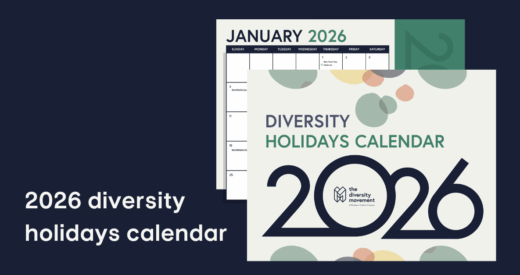International Pronouns Day (IPD) is a day for everyone, particularly those in the transgender and nonbinary community, to be open about and celebrate their pronouns. It takes place on the third Wednesday of October each year. International Pronouns Day began in 2018 and has since become widely known, especially on social media, with many people wearing stickers or pins to publicly declare their pronouns, in some cases for the very first time.
Although it is a relatively new holiday, it is an important one. Now more than ever, we are seeing people from every background becoming more open about who they are, which includes sharing details such as their gender identity. IPD is a day to celebrate those who are outside of the gender binary, as well as those who have transitioned between the binary, and learn about the language they use to describe themselves.
Correct pronoun use
There are a number of different pronouns that people may use, the most common being she/her/hers, he/him/his, or they/them/theirs. There are also what are referred to as neopronouns, such as xe/xem/xyr, ze/hir/hirs, and ey/em/eir. The list goes on, and many different new pronouns are being added each day as more people explore their identity and the language that makes them most comfortable.
When asking someone’s pronouns or giving your own, it’s important to avoid the phrase ‘preferred pronouns’ because it implies that each person’s gender identity is a choice and not an innate dimension of their identity. There are no ‘preferred pronouns.’ There are simply correct pronouns and incorrect pronouns. When you want to ask someone’s pronouns, one way to start is by sharing your own. Say “I use she/her pronouns. May I ask your pronouns too?”
The cultural and linguistic context of pronouns
There are a large number of languages that use gendered verbs and nouns, which means that individual words are given a masculine or feminine gender. One example is Spanish where books (los libros) are masculine and schools (las escuelas) are feminine. Typically, a word referring to a person will also have binary masculine and feminine forms, such as tio (uncle) and tia (aunt). In rejection of the binary–and to provide a genderless option for all people–many of these gendered languages are now seeing new genderless words arise.
For instance, instead of only being able to choose between Latino and Latina when referring to a person of Latin American origin, you can now use the gender-free Latinx or Latine. The similar terms of huma and intuma are also being used by the Arabic community. By diversifying our language use, transgender and nonbinary individuals are able to feel more included and valued in all of society.
Why organizations should acknowledge International Pronouns Day
The chance that your organization employs only cisgender people (those identifying as the gender they were assigned at birth) is little to none. Being safe from harassment, prejudice, and discrimination in a place where we spend so much of our lives is not only a basic need, it is also the law. To ignore the diverse identities of others is to ignore the humanity of your fellow employees, coworkers, and peers. In the same vein, it is also important for schools to recognize diverse holidays like International Pronouns Day. In this article, Andrew Greer of Vanderbilt University speaks on why diversity is important in the classroom.
One way to celebrate IPD is to share your own personal pronouns and work to make that action commonplace by adding pronouns to your email signature, personal introductions, and social media profiles. This is something that takes little time and yet may mean the world to another person. But, if you’re a manager or business leader, it’s also important to understand why pronoun sharing should always be optional.
As the official IPD website explains, “International Pronouns Day seeks to make respecting, sharing, and educating about personal pronouns commonplace. Referring to people by the pronouns they determine for themselves is basic to human dignity.” Not only is it kind to refer to someone by their correct pronouns, it’s also a way of clearing the path for every employee to do great work. In other words, when we don’t feel included, we can’t do our best.
Mel Hartman is a grad student, currently working towards their MFA in creative writing. In their spare time, they write/edit/produce fiction podcasts as well as run a small cat rescue. They are passionate about social justice, especially LGBT issues, and hope to be able to make the world a better place for everyone.






